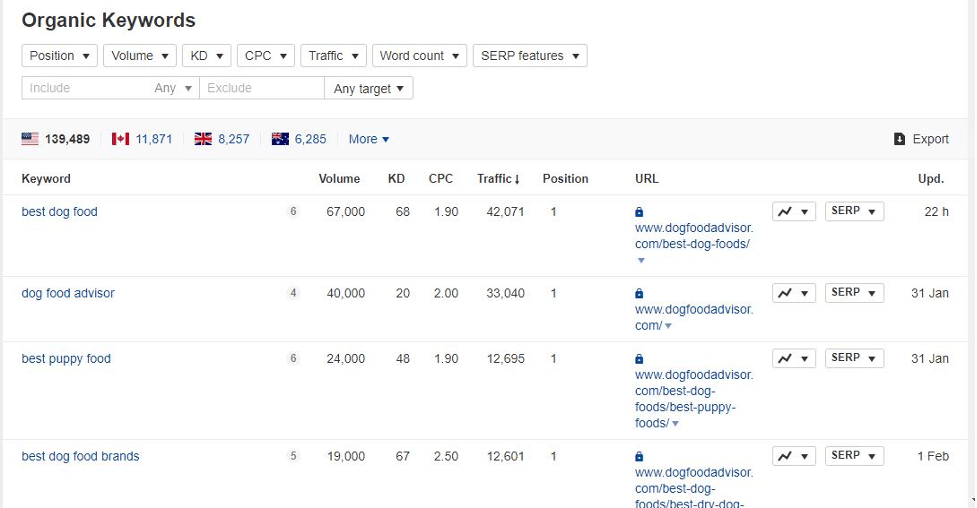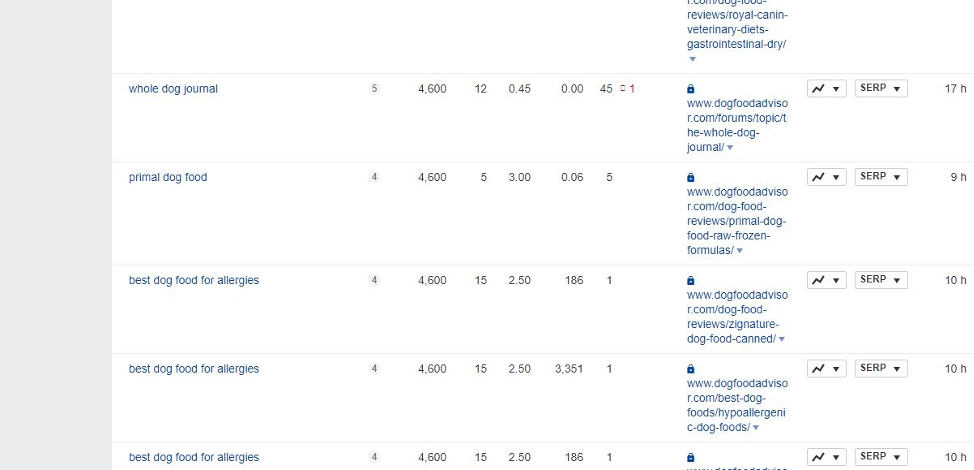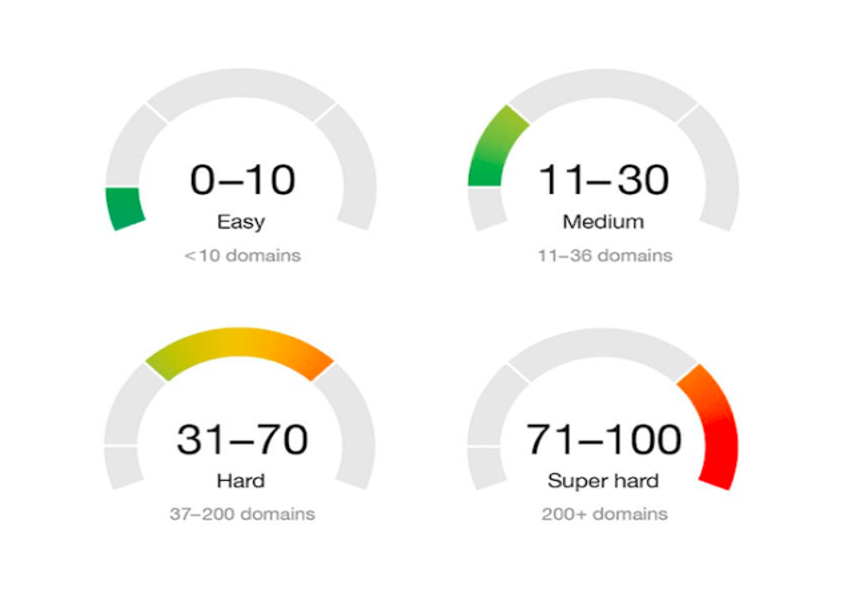A simplified step-by-step guide to doing keyword research
By Evans, February 02, 2021

Getting my own site was a dream come true. There was nothing on earth that could prevent me from becoming an internet bigwig. I had the right idea and was driven enough…everything needed to run a successful sight, or so I thought. I did my first post, the second one…the third post. For some reason, I couldn’t get the breakthrough I needed. The only people who visited my site were a few friends, some of who I had to keep singing to them about my awesome site. I was missing something, I just didn’t know what it was. What made the popular sites rank at the top during a google search? I was almost giving up when a friend educated me about the power of keywords. Do you know getting the right keywords for your site can be exactly what your site needs to attract traffic? I am going to guide you step by step on how you carry out keyword research. I will be using the simplest language that a beginner can clearly understand and act on. Just stay with me.
What is keyword research?
When you are seeking information about a particular thing, there are particular phrases that you will use. For example, if you want to know how to bake a banana cake, you will probably search, “how to bake a banana cake” or “banana cake recipe.” This how the first page will look like:

Keyword research is therefore finding out what real life internet users are searching for. This helps you know what your target audience are looking for.
Steps to Keyword Research
Understanding your target audience
Since keyword research involves finding out what internet users are searching for, you need to first of all understand your target audience. Who are you writing content for? What do they seek to achieve? How do they want their products and services packaged? Understanding your audience is the first step to keyword search.
Content audit
Once you understand your audience, the next step is to carry out a content audit. An effective content audit involves analyzing all the content in your website for the future planning. In this step, you analyze the strengths and weaknesses of your previous posts. This helps you understand the changes you need to make on your future posts. Content audit also helps you to know what you have already covered and what you should now cover for the sake of client satisfaction.
Example
Let’s say you have an academic research blog and your target audience is college students who are yet to do a project, research paper, thesis or dissertation
If you want to do a blog post relating to research paper topics, I will have to go through the blogposts related to it. This will help me understand what we have already covered so as not to repeat it. This makes it easier for me:

Ways to carry out keyword research
Brainstorming
Most great ideas begin with brainstorming. If your website is about recipes, forgive my love for food, begin by thinking of ideas of recipes you have not written about, or something that you would love to cover. You won’t believe just how you can get great ideas right from your head!
Alphabet research
Maybe you’re wondering why I’m calling it alphabet research. Well, let me explain. This is the method whereby you use google predictions to get the right keywords. Lemme put it like this; when you want to make something, you can just go to google search and enter “how to bake….” Just by those few words, google will bring up predictions, which are an indication of the things that people are searching for the most. The page will look closely to this:

If you decide to choose how to bake a banana cake, google will bring up several pages that have come up with such recipes. This will help you understand what kind of content has been written. As you check them out, you should keep in mind the domain authority of the sites. What do I mean by domain authority?
Domain authority is basically relevance of a site when it comes a specific subject. It shows the strength of that particular site in a certain industry. For example, when we heard about the covid-19 outbreak, there are several sites that we could trust to tell us the truth. The main one being
WHO. This is because we know its authority in matters relating to health, diseases, and such. You should avoid creating content that has been created by bigwigs. This is because for an upcoming site, you have no chance competing with such sites.
How to uncover good keywords using alphabet research approach
Alphabet research involve searching for keywords using the alphabetical letters. This means you can being with letter A until you get the right keyword. There are many things you can bake that begin with the letter A that you can write about, for example apple-pie, apple cake, asparagus among others. If none fits you, go to letter B, C, until you get the perfect one.
Note: Look at the search results of each search, if those websites that appear on page one is forums and question answer sites, then bingo you have an easy to rank keyword.
Doing competitor analysis using a keyword research tool
This is the best approach of doing keyword research that many content strategists use to uncover good keywords that can bring you tons of traffic.
So, what exactly is competitor analysis?
Competitor analysis involves researching on the keywords and content of your competitors so that you can reverse-engineer their successful elements and at the same time uncover less competitive keywords to capitalize on.
Competitor analysis help you answer questions like
Who are my competitors when it comes to SEO?
What topics should I cover?
What keywords should I target?
So, how do you do competitor analysis
Begin by identifying your competitors
Let’s say you run a blog about dog food, chances are there are many other people who run a blog about dogs, or have dog food stores and gets ton of traffic from different keywords from google. Do a random search about your industry. Go to google type the name ‘dog food’ and search. You can search for other related keywords such as ‘dog breed’ ‘popular dog food brands in [your country]’ e.t.c to accurately identify your competitors.

Identify 2 or 3 websites that rank on top of Google
For the purpose of illustration, I selected the following as my competitors
1. dogfoodadvisor.com
2. breedingbusiness.com
Once you have identified your competitors, you need a keyword research tool for conducting competitor analysis. There are many keyword research tools out there that you can use to do competitor analysis. There are free keyword research tools but I advise you choose the paid once because they provide more accurate and extensive data
Tip: You don’t have to pay for it, you can simply signup for a trial version using your card and cancel the subscription before the trial days are over.
Example of keyword research tools you can use include MOZ, Semrush, Ahrefs, and Uber Suggest. I always use Ahrefs and thus will use it for the purpose of this article.
Identifying easy to rank keywords by using Ahrefs
With your two competitors, head up to Ahrefs register and go to dormain research

Plugin one of your competitor’s website link and click search data. You will be provided with the following dashboard with a lot of data about your competitors such as Domain Ratings, backlinks, number of referring domains, organic keywords, organic traffic, and traffic value (Do not worry about this overwhelming information) we only need to check organic keywords.

The next step is to click on the organic keywords
Once you click on organic keywords, you will be directed to a page with information about the keywords that brings users to your competitor website. The keywords contain metrics such as volume, KD (keyword difficulty which shows how easy or hard it is to appear in page one of google), CPC (Cost per click, this information is important for paid traffic), the traffic it brings and the position of your competitor in search results. These are the keywords you should be targeting too! However, if your site is fairly new, you have to find low competitive keywords.

Here is how to find low competitive keywords
Click on the keyword difficulty tab so that it can arrange the keywords from easy to rank all the way to hard to rank. Easy to rank are keywords with a KD of at most 15.
Once you arrange them from less difficulty, begin searching for those keywords with high volume but keyword difficulty of less than 15.

Once you find the perfect keyword, click on it to check for other related keywords. In our case, I have settled to write about ‘Best dog food for allergies’
So I will go ahead and write an article with a title such as “13 best dog foods that you can give your dog when having allegies”
Validating your ideas
Your mind has the ability to come up with great ideas. However, there’s still a need to ensure their validity as per market needs. So how do you go about the validation process?
Keyword difficulty
Brainstorming and coming up with cool keywords is quite easy. Figuring out the keyword difficulty is where the real work now begins. This is basically trying to get into the Google’s head in order to understand the techniques they use to rank webpages. While getting a hang on keyword difficulty is a great idea for your site, it doesn’t necessarily mean you completely understand how google ranks webpages. In all honesty? Nobody really does. However, understanding keyword difficulty puts in a much better place.
Once you get a strong idea, you need to put it through a keyword difficulty checker. Keyword difficulty ranges from 0-100. The higher the value, the more difficult it would be to rank that particular keyword. This illustrates it better:

For a fairly new site, it is important to choose keywords that have 0-10 difficulty. Try using ubersuggest to check the difficulty checker of a keyword you have chosen and see how it goes. Good luck to you!
